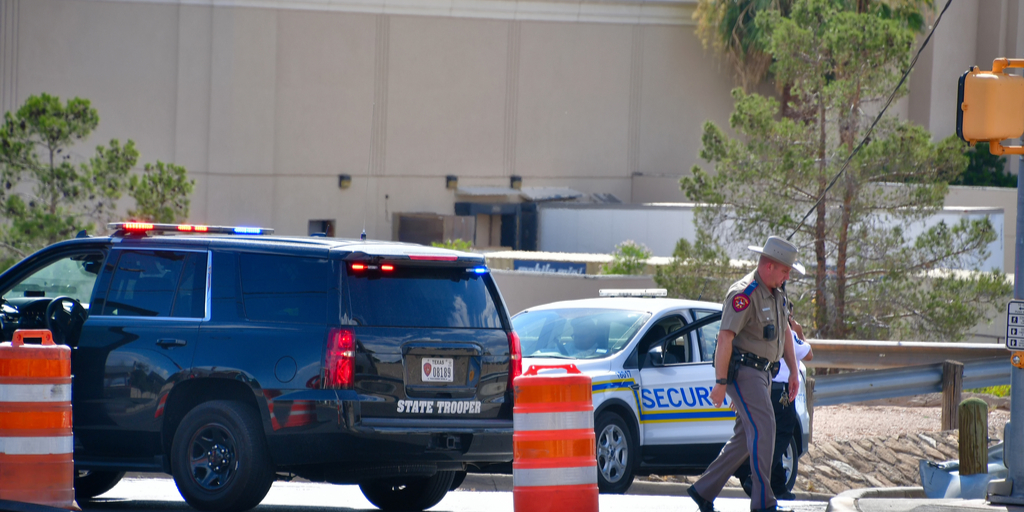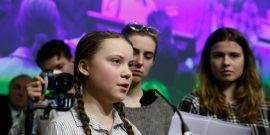Growth is only being demonized because it has been disenchanted, courtesy in part of digital technology.
Ideology or Psychology?
About halfway through Monday’s broadcast of the PBS News Hour, I was fascinated to see that one of the speakers presented as an expert on mass violence was none other than an intellectual historian, a University of Chicago professor named Kathleen Belew. Belew has just published a book tracing the evolution of white supremacy in America from the days of its appearance on the Internet in the 1980s up to the Oklahoma City bombing in 1995.
What really drew my attention was how Belew situated her research within present day debates concerning the causes and nature of mass shootings. Clearly there is a growing disposition among some to move public discourse away from psychological arguments about “lone wolves” to one that sees them as part of a more politically conscious and deeply orchestrated movement. Professor Belew is in that camp.
As the various discussants made plain throughout the broadcast, law enforcement has easier access to federal resources when going after terrorism that is directed or inspired by foreign actors because of its broader global and systematic nature. Consequently, to relate mass shootings to a more concerted web-based ideological movement could potentially inspire the kind of legal reform that would give law enforcement similar access to data and powers of surveillance in these instances of mass shooting.
While I, for one, have no problem with the sharing of information among law-enforcement agencies, either state or federal, for investigating and preventing violent acts, I do have some very deep concerns about the specific rationale being offered by Professor Belew.
Far from being “lone wolves,” she argues, mass shooters are connected to each other through “decades of organizing.” What is lacking, she insists, is a “coherent prosecution of this movement.” Indeed, she went on, the shootings are meant to be “focal points” for recruiting new members to the Aryan Nation.
One has to sympathize with Professor Belew’s desperation to deal with this horror. But our orientation to the evidence has to be accurate and our reasoning sound.
The fact that a number of the shooters have been inspired by these ideologies of hate is not a refutation of the psychological profiles used to explain their horrid acts. Indeed, if the ideological factor were to be, as Professor Belew seems to be advocating, sufficient grounds for prosecution, we would be challenging more than the NRA’s reading of the Second Amendment; also in play would be the ACLU’s reading of the First!
What has happened, I am afraid, is a classic error to which intellectual historians are peculiarly prone due to the nature of their craft. The historical profession, dominated by left-leaning social history in the 1970s, moved in the 1990s to the forms of discourse theory that predominate today; but this means that it has become focused on forms of intentionality and purposefulness. That in itself is not bad. (I have written on that in a chapter here.) But what must be guarded against is the temptation to see purposefulness in everything—to the point where one is seeing conspiracy everywhere.
Ironically, to succumb to this fallacy is to subtly reflect the very mindset to which these ideologies of hate tend to appeal. There is in fact a problem of social isolation to which the minds of young men are particularly susceptible (See for example, this). For most of human history, the social and economic roles of individuals were fairly well defined and prescribed. The modern division of labor, on the other hand, directed as it is through largely voluntary commercial relations, does not always satisfy everyone.
Add to this the misdirected social policies of the past 50 years, the ever-burgeoning rates of incarceration, the drug war and its deformed twin (communities decimated by addiction), and there is little left for many individuals so affected to attain a sense of purpose sufficient to sustain anything other than an oppositional form of identity. And this has had a particular influence on predominantly young white men.
It is this kind of oppositional identity that the platforms of conspiratorial thought thrive upon. And here I might recommend a much deeper investigation into the debilitating aspects of modern communication technology: Catherine Steiner Adair’s The Big Disconnect: Protecting Childhood and Family Relationships in the Digital Age (2014). Let us just say, texting is no way to hug your child.
It is the oppositional, anti-social, and yes, essentially isolated frame of mind that is particularly drawn to the mirage of social connectivity that electronic media impart. It is this social isolation that is still a big part of what is transpiring. Yet here comes Professor Belew, (and she is by no means the only one) to raise, inadvertently or not, the status of these shooters from that of the mentally ill to membership in a grand conspiracy.
This argument, of course, leaves open the question of what ideas are supposed to count as radically “alt-Right” and which ideational signifiers are to be marked as permissible; which are, and which are not, classifiable as “hate?” Perhaps even more alarming is the question: Who gets to decide?
And what then to make of those who do not fit the particular ideological profile of Professor Belew such as the Dayton shooter? He was a misogynist, to be sure, but he was also a supporter of an openly professed leftwing socialist.
Further in the discussion, Professor Belew let slip a prime indicator of the sort of discourse analytics she is actually applying when she noted that white supremacy undergirds large swaths of our electoral and judicial institutions. (Again, intentionality everywhere!) But as we see, this explanation doesn’t reach every assailant who commits an atrocity.
One could hope in this day and age that people might finally wake up to the fact that our local and state governments have ceded far too many of their responsibilities up the chain of command, even as, at the federal level, Congress has ceded far too much of its authority to the executive branch. Real community is local, not virtual—and it is only at this level that we will get a rein on the problem.
Are we then, in a moment of fear and distress, to centralize even more power to classify harmful and less harmful thoughts, as Professor Belew seems to be suggesting?
In this instance, I would listen to the psychologists and not the historian.


